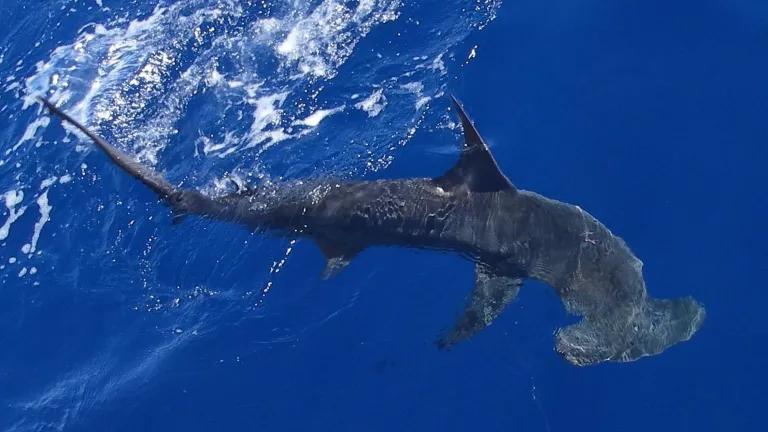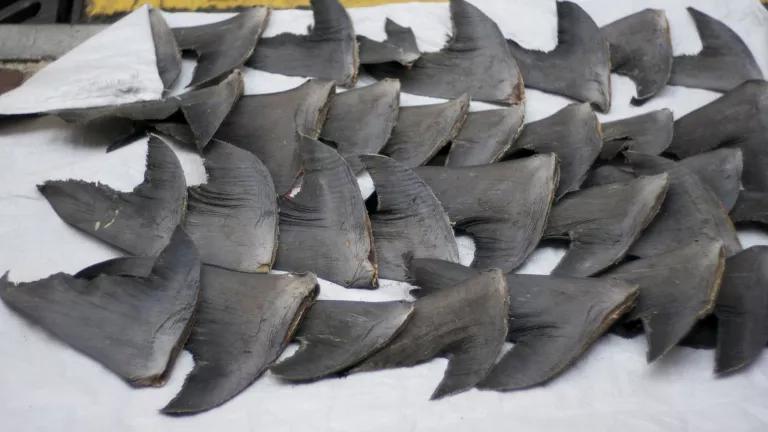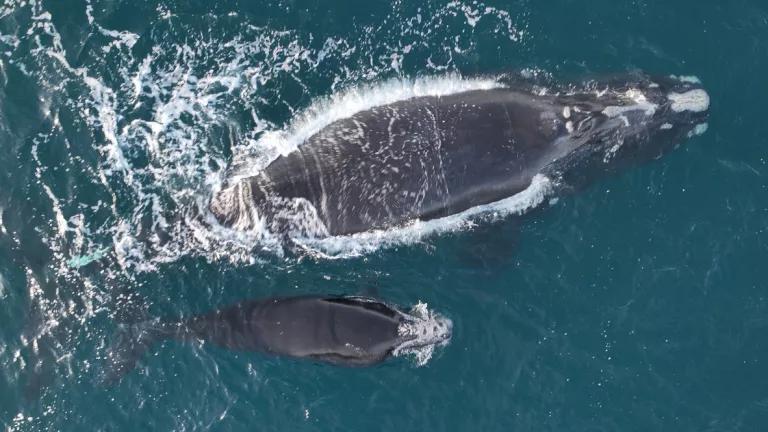The Hidden Role of the U.S. in the Global Shark Fin Trade
A new report presents NRDC’s research showing that our country still allows shark fins, many of them illegal, to transit through our ports unmonitored.

Scalloped hammerhead shark
Even as the U.S. is considered a leader in shaping global shark conservation policies, a new report presents NRDC’s research showing that our country still allows shark fins, many of them illegal, to transit through our ports unmonitored, as they make their way across the globe.
Unintentional Partner: How the U.S. Helps the Illegal Shark Fin Market examines the magnitude of the problem and shines a spotlight on some uncomfortable truths:
- The U.S. is an important transit hub for the global shark fin trade, as shark fins pass through our ports en route from source countries in Latin America to end markets in Hong Kong and beyond.
- The countries that ship shark fins through U.S. ports are major players in the global shark fin trade, both as shark-fishing nations, and as suppliers of fins—including the fins of protected species.
- Fins from protected sharks appear to be common in the shipments that transit through U.S. ports—often undeclared and commingled with the fins of non-regulated shark species.
- Although both U.S. and international law regulate much of the shark fin trade in order to ensure that it is legal and sustainable, in-transit shipments are rarely monitored or inspected.
We conclude that the U.S. allows substantial volumes of shark fins to transit our borders each year, largely unmonitored and undetected—and many of them illegally traded, the result of illegal, unregulated, and unreported (IUU) fishing, or both.
As we publish this report, I have just returned from Lima, Peru, where I participated in the First High-Level Conference of the Americas on the Illegal Wildlife Trade. Wildlife trafficking (which includes a portion of the global shark fin trade) is a key driver of wildlife loss and a notable contributor to the extinction crisis we currently face. The Lima conference aimed to highlight the vital biodiversity of the Americas and sound a call to action across the region to halt the plunder of oceans and forests that feeds this illegal trade.

Shark fins drying
A key message from our fellow countries of the Western Hemisphere: Stamping out the illegal wildlife trade (which includes the IUU fishing that funnels marine species like sharks into the trade) requires coordinated, collaborative action along the entire length of the global supply chain.
While shark fishing and trade in shark meat, fins, and other products is legal in many parts of the world, many shark populations are in steep decline. Shark fins remain one the most valuable seafood products in the world, and demand for shark meat has increased as well. Once considered accidental bycatch by fleets fishing for tuna, swordfish, and other species, sharks are now targeted, by commercial and artisanal fishers alike, and their fins and meat are traded internationally to feed the growing demand for shark products. As a result, a quarter of sharks and their relatives are now considered at risk of extinction.
When shark fin shipments transit U.S. ports unmonitored, the U.S. becomes a weak link in the global supply chain. But the U.S. has the resources and the strong legal framework required to shut down the illegal shark fin trade within our borders and to support international efforts to ensure the legality and sustainability of shark products in trade. And we have a global responsibility to do just that. By increasing our efforts to identify and seize illicit shark fin shipments, and penalize the traffickers who are pillaging the oceans to enrich themselves, we can take advantage of a critical opportunity to help end global exploitation of sharks—rather than missing the boat.



